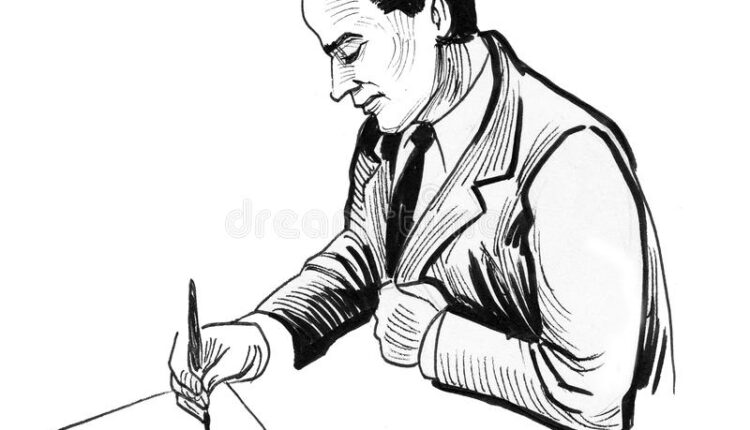
By abiodun KOMOLAFE
Nigeria’s current challenges are products of a complex interplay of historical, economic and social factors, including a flawed foundation, poor governance and successive elites’ inability to improve the country’s infrastructure and institutions. This foundational weakness has hindered national progress, resulting in unimpressive development indices. Those in power seem content with the status quo, benefiting from it recklessly, while Nigeria’s governance appears to cater only to about 3% of its population, leaving the vast majority to fend for themselves or simply “go and die”.

To understand the roots of these challenges, it’s essential to examine Nigeria’s history, particularly the events surrounding the 1966 coup. The coup, led by Chukwuma Kaduna Nzeogwu, lacked the meticulous planning and preparation that characterized the Free Officers’ coup in Egypt in 1952. In Egypt, the planners had been secretly meeting with professors and researchers in the barracks for years, brainstorming an economic blueprint for the country’s social life. Unlike military leaders like Gamal Abdel Nasser and Anwar El-Sadat, who altered the course of history due to their preparation, Nigeria’s military leaders had consistently demonstrated a lack of readiness to lead the country.
In more stable societies, a civil war can serve as a catalyst for national rejuvenation, as seen in the aftermath of the American Civil War. However, this was not the case for Nigeria. Despite having access to technology during the avoidable civil war, the Nigerian establishment failed to leverage this opportunity for post-war growth and development.
Nigeria’s missed opportunities in harnessing technology have hindered its progress. A constitution prioritizing research and funding could have propelled the country to become a major arms manufacturer. Sadly, the Defence Industries Corporation of Nigeria (DICON), envisioned as Africa’s military-industrial complex, has been underutilized. Originally designed to drive innovation and self-sufficiency in defence, DICON’s potential remains so untapped that it’s now competing with Dangote in the production of salt and allied condiments. It is that bad!
A country’s legacy is deeply rooted in its economic foundation, which in turn shapes its citizens’ sense of identity. Just as individuals derive a sense of belonging from their family ties and investments, a nation’s identity is forged by its citizens’ stake in the country. This stake is often manifested in tangible assets, such as homeownership and financial security, like inflation-adjusted pensions. When citizens feel invested in their country’s economic future, they are more likely to feel a strong sense of national pride and responsibility.
One country that has made significant strides in building a strong national identity is Brazil, where President Ignacio Lula da Silva has implemented policies to promote home ownership and economic growth. Lula da Silva builds a minimum of one million housing units a year for Brazilians. By so doing, people who thought they could never build houses in their lifetime move into houses. So, what’s Nigeria building and what’s the Nigerian state giving its people? Obafemi Awolowo built the Nigerian Tribune in 1948 and the newspaper still came out for public consumption this morning. So, Awolowo has a legacy! On the converse, what has Nigeria built and what projects do Nigerian stakeholders have a vested interest in?
One of the United Kingdom’s strong pillars which is why the country has a strong national cohesion is that its democracy is not based only on parliamentary representation, constitutional monarchy and free elections. The central core of democracy in the UK, as in the Nordic countries, is widespread home-ownership. That’s why the UK has a strong identity. Is Nigeria a home-owning democracy? Consider, for example, the thousands of young Nigerians currently embarking on the national service journey. Given the current economic reality, it’s uncertain how many will secure jobs with a minimum salary of N70,000.00 template within the next two years.
Ghana’s stronger sense of national cohesion and identity presents a striking contrast to Nigeria’s experience. In addition to its rich history and economy that contribute to its relative stability, Ghana is also a democracy. It has different tribes, and there’s also poverty in Ghana. In our very eyes, Nigerians continue to roast Nigerians and it seems as if nobody cares. But why is that not happening in Ghana? Are there no herdsmen in Ghana? Despite conflicts in neighbouring countries, why are there no reported cases of herdsmen killing Ghanaians in Ghana? Or, don’t they eat cows in Ghana?
Kenya has inflation-adjusted pensions. Nigeria is not even paying pensions regularly. What then are we saying about national identity? Again, what’s the standard of literacy in 1966 and how much advance was made in 1999? Wouldn’t Nigeria have made better advances if the oil boom had taken place even under the most useless civilian government? Wouldn’t the monies accrued from it have been better spent under the 1960 and the 1963 Republican Constitutions?
While government and governance in a democracy are the products of the consent of the governed, democracy is still like dictatorship; it has its own discrepancies. For instance, former President Olusegun Obasanjo would always task Nigerians’ tolerance by regurgitating the flock of sheep and the herd of cows he left behind on October 1, 1979. He would want to regale us with how he met not only an empty treasury but also one riddled with the bullets of debt.
Still on the issues surrounding our condition, Balogun Owu would want to insult Nigerians’ collective intelligence with the miracle of debt forgiveness. Unfortunately, he has never disclosed the weight of the financial burden handed over to the Shehu Shagari-led administration, or the expenses incurred by the debt-cancellation emissaries, who practically turned the airspace into their homes.
Once upon a country, Afenifere was an ideology and its members were not only patriotic but also futuristic. Today, the pan-Yoruba sociocultural organization belongs more to the self-aggrandizers, petty politicians and pretenders, with their reckless and unrealizable utopian idealism constituting another serious layer that has been ruining everything for everybody.
As if the gods are angry, Nigeria has become a moving momentum without lasting impact, where the cost of living is killing the living, and where the future seems to have been frozen. The First Republic was truncated because the political practitioners of that era were accused of being ‘ten percenters’. But what were Ibrahim Babangidas collecting that they could afford their Hilltop mansions? In the olden days, the Supreme Court’s voice was revered like a divine oracle. Now, the court struggles to make its voice heard, but the people are no longer listening.
In the contemporary political landscape, traditional rulers seeking relevance might need to know influential figures like Abdulrahman Fasasi, form alliances with prominent families like the Emeka Offors, or curry favour with the interests of powerful individuals like Seyi Tinubu. Amidst these complex relationships, the Niger Delta region feels its oil resources are being used to benefit the entire nation, while the North claims marginalization, particularly in support of herder.
Tragically too, some elements in the Eastern part of the country continue to whet the appetite of secessionist movements, wrongly assuming that Biafra and good governance are Siamese twins. Elsewhere, a dancing governor’s decision to prioritize his hometown’s development with state resources raises questions about power and inequality. ‘Ìmólè’ continues to perpetuate uneven development, where some areas thrive while others struggle; and it’s as if the principalities and powers of election victory are localized in Timi Agbale’s kingdom.
In all, given the socioeconomic challenges and declining values in our nation, how will the past finally become a source of hope for Nigerians?
May the Lamb of God, who takes away the sin of the world, grant us peace in Nigeria!
…Concluded.
KOMOLAFE wrote in from Ijebu-Jesa, Osun State, Nigeria (ijebujesa@yahoo.co.uk; 08033614419 – SMS only)


